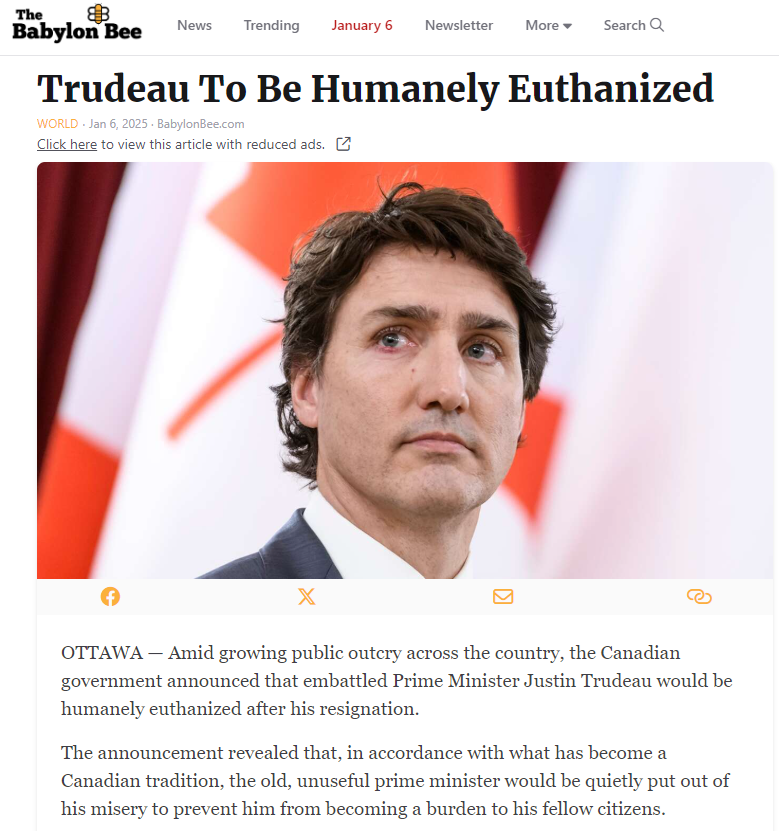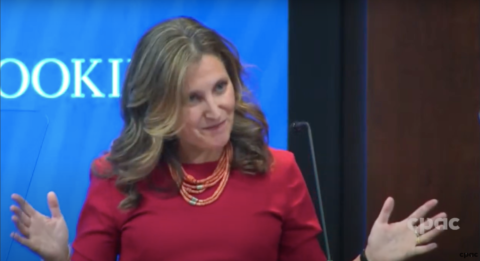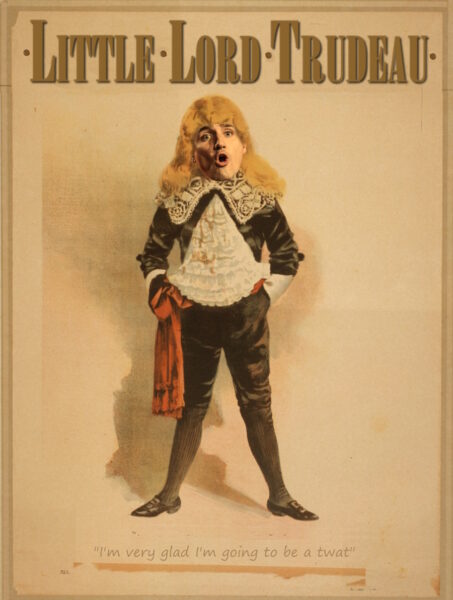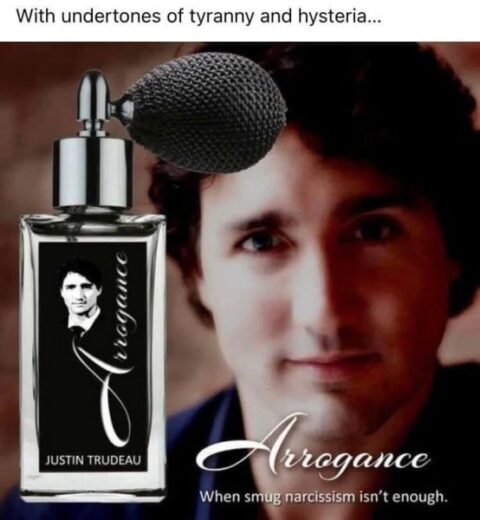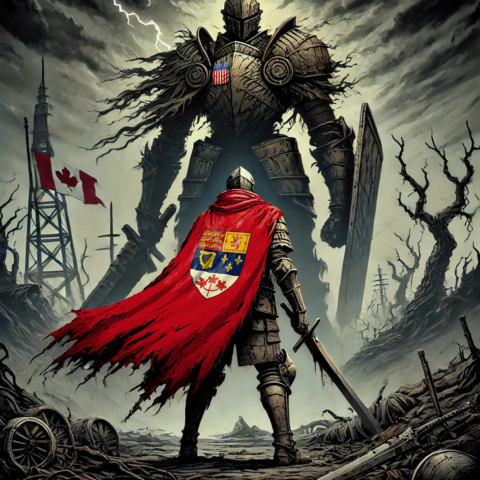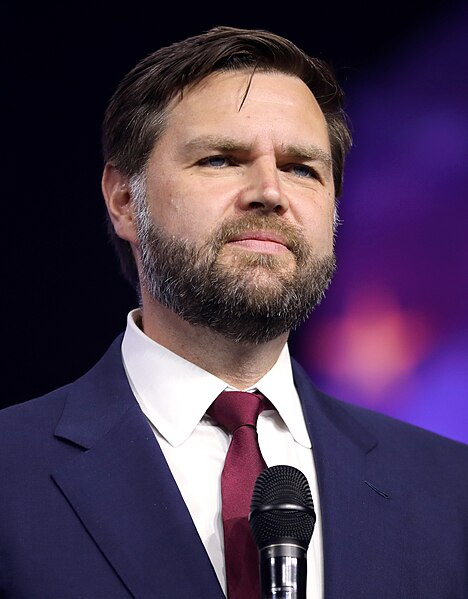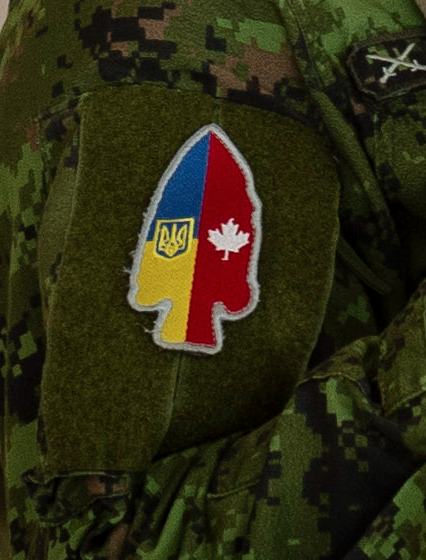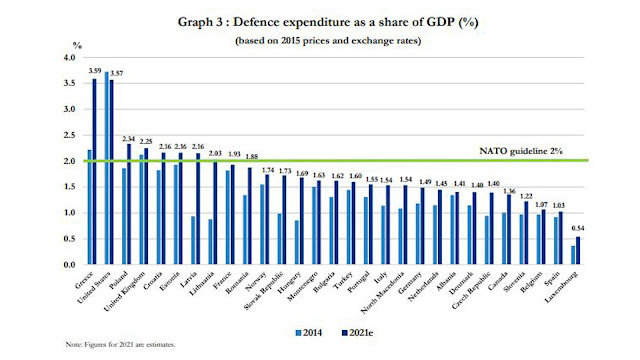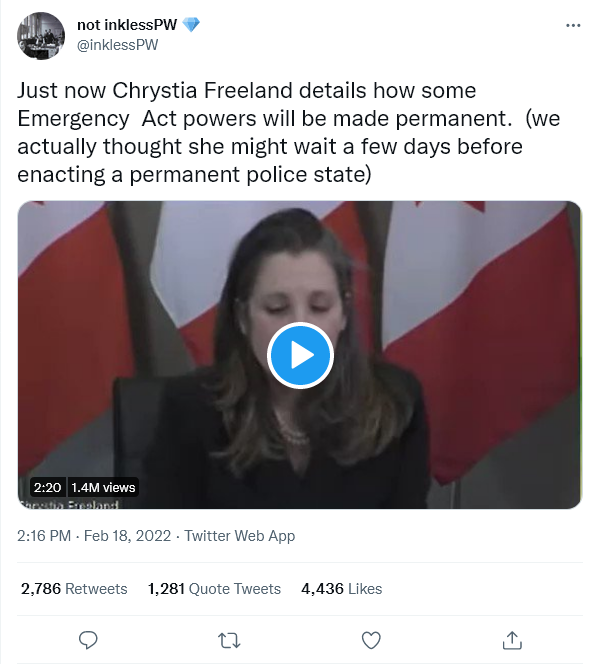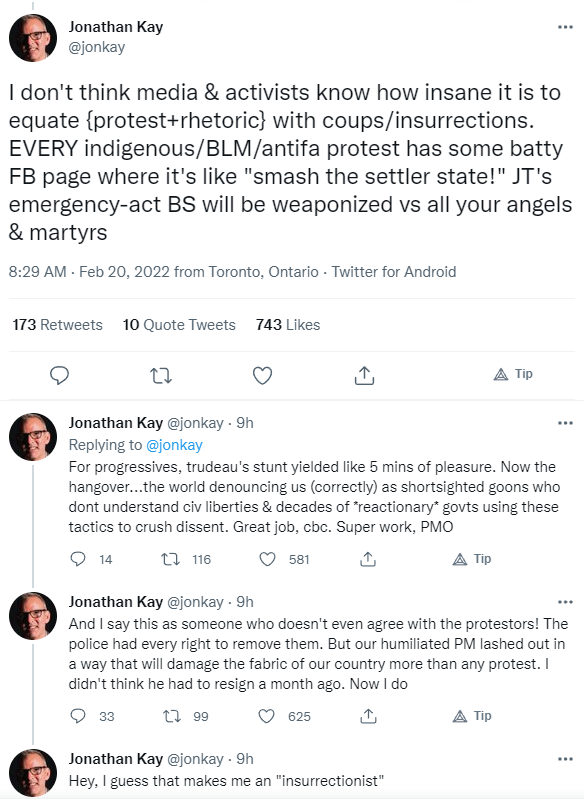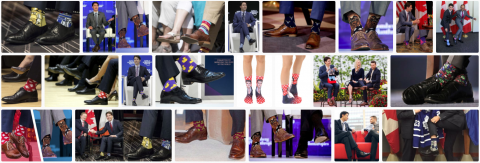Rather than letting Canadians have an election, Justin Trudeau announced that he is resigning as Liberal party leader but that Parliament will be prorogued for long enough for the Liberals to run a full leadership campaign. This means that Trudeau’s replacement will likely be prime minister for roughly as long as it takes for Parliament to come to order after prorogation and not a minute longer. Nice work, Justin!
Full credit to the Babylon Bee for their coverage:
It’s impossible not to feel that Trudeau’s ego has been the biggest player in our national psychodrama over the last few months (years, actually), as it seems inevitable that Trudeau’s hapless successor is going to be the Liberal Party’s version of former PM Kim Campbell, although probably not being reduced to a caucus of two seats in a landslide, as Campbell endured.
The Line‘s immediate response quite properly describes Trudeau as “an absolute Muppet”, and I think that’s pretty unkind … to Muppets:
There was only one major thought that crossed your Line editors’ minds when watching Prime Minister Justin Trudeau’s resignation speech on the porch of Rideau Cottage on Monday morning: “Jesus Christ, the absolute self regard of this fucking Muppet.”
Yes, that’s harsh. We’re even almost sorry about it. And we’ll touch on the humanity of it all in a moment. But for now, like, gosh. This isn’t good.
We are well aware that much of the media will be replete with mopey paeans to the decade-long service of this prime minister, even as he announces his entirely hypocritical plan to prorogue Parliament until March 24 in order to enable his party to assemble a chaotic and hasty leadership race. You’ll get none of that from us here at The Line. Trudeau deserves no such consideration — at least not at the top. From where we sit today, the sheer arrogance of this man, and the party that has enabled him, has just locked the nation into months of parliamentary paralysis in the midst of what is likely to shortly become an economic trade war and a broader international geopolitical realignment.
While we fully expect news of Trudeau’s resignation to lead many of our readers to sound the bells, we share none of their relief. The decision he announced on Monday demonstrates a total lack of respect for voters, an utter disregard for the good of the nation, and a profound obliviousness to the realities of the international environment we are about to find ourselves in.
And while we’d like to give Trudeau some credit for demonstrating an ounce of genuine humility in his resignation speech, too much of it was crammed with statements of breathtaking, overweening egotism; he pegged his decision to leave squarely on internal divisions — a fantastic parting “fuck you” to his caucus that abrogates any attempt at accountability for his own policy or leadership failures.
Trudeau repeatedly justified his decision to ask for the house to be prorogued by noting that Parliament had become dysfunctional, the opposition parties had stalled business of the house on process questions, and the government was in need of a “reset”.
This blithely ignores a few points, including the fact that part of the reason Parliament has been stuck in a procedural quagmire is because Trudeau’s own government has refused to hand over a potentially incriminating dossier that may demonstrate thwacks of taxpayer cash being siphoned off to well-connected businesses and insiders via what the opposition has deemed a “green slush fund”.
This is a matter upon which the Commons’ Liberal speaker ruled against his own party. The Liberals could have stopped the pseudo-filibuster by turning over to Parliament the documents that they are required to turn over. They didn’t.
The very foundations of the Westminster parliamentary system are rooted in the concept of confidence: if you can’t maintain the confidence of the house, you cannot rule Parliament. Prorogation is a procedural tool intended to govern ordinary logistics. It should never be used to circumvent a matter of confidence — and while it was delicious to watch Trudeau squirm on this point during his resignation speech, defending Stephen Harper’s 2008 use of it in order to justify his own, the fact remains that both leaders have now set and affirmed a dangerous norm that undermines one of the foundational democratic concepts of our democracy and how it functions.
When a government finds itself this battered and unpopular, and when a long-serving leader has announced that he’ll step down, while prorogation may be legal, there’s only one politically and even morally right thing to do. There is only one way to “reset” parliament. Only one.
Call an election.
Paul Wells says “The Liberals give themselves three months to save the furniture”:
He was late as usual. He sounded sad. The wind blew his script away. He said more or less what you expected. When his time in office ends at the end of March, he’ll have been prime minister for a few months less than Stephen Harper was. His party has very little chance of recovering, but more than it had yesterday. It would have been so easy to pick his own time, maybe at the end of 2022, but apparently these decisions are hard to make.
Things happen fast. It’s been six weeks, Monday to Monday, since Donald Trump threatened 25-per-cent tariffs on everything Canadian. Three weeks since Chrystia Freeland resigned from cabinet. In two weeks Donald Trump will be sworn in as President of the United States. Justin Trudeau’s resignation is a pure product of this crisis.
I see a straight line from Trump’s Truth Social outburst of Nov. 25 to this week’s events. Trudeau’s circle once thought a second Trump victory would help them make the case against Pierre Poilievre. It’s fair to say the results are not up to their hopes. With Elon Musk continuing his hobby kibbitzing in the politics of countries around the world, Canada will now stand as a warning to governments elsewhere: Trump and his crew can take you down.
Having stalled until he ran out of options, Trudeau will now become incidental to events. There’s a lot going on. Wistful tribute speeches in the House of Commons will have to wait. The Trudeau succession will play out quickly, in four arenas at once: Parliament; the Liberal Party; the electorate; and Canada’s national security. Events in each venue will influence the others.
Some people accuse Trudeau of doubling the national debt during his time in office — from C$612B in 2015 to C$1.2 trillion currently — but as mathematically inclined commentators have noted, Trudeau also successfully engineered the decline of the value of the Canadian dollar so that the actual increase in national debt is less than 55%! Success!
At Spiked, Tom Slater bids farewell to “Canada’s first black prime minister”:
Yes, Justin Trudeau – the man who proved that in these topsy-turvy political times you can be a liberal and an authoritarian, and painfully woke while also having spent much of your youth in black face – has finally resigned.
The writing’s been on the wall for some time now. After historically low poll ratings, came the resignation before Christmas of his deputy, Chrystia Freeland, who clashed with Trudeau about how to tackle president-elect Donald Trump’s imperious threats of a 25 per cent tariff on Canadian goods. In the end, Justin jumped before he was pushed.
After almost a decade in power, he will step down as prime minister and Liberal leader as soon as a successor can be found. Polls suggest that, such is the hole he has left his party in, whoever replaces him will likely face a shellacking in the upcoming election.
Where did it all go wrong? When Trudeau took the reins of his nation back in 2015 – following in the footsteps of his father, Fide … sorry, Pierre – he rode on a wave of popular support and corporate-media swooning.
With the election of another pampered rich kid south of the border a year later, Trudeau was praised in the international media as the anti-Trump – progressive, pro-migration and drop-dead gorgeous, to boot!
Indeed, the next time an establishment scribe slurs Trump supporters as doe-eyed dolts dazzled by celebrity, point them in the direction of the gushing coverage of “hunky” Trudeau, who seemed to govern as if he was in a budget version of The West Wing.
Soon enough, he began carrying on like an unsubtle caricature of a cringe, establishment liberal, chiding women for saying “mankind”, instead of “peoplekind”, and declaring that he was insisting on a 50:50 male-to-female cabinet “because it’s 2015“.
Trudeau is the apotheosis of a hectoring style of politics that assumes voters are terrible bigots in need of lecturing, and women and minorities are perennial victims in need of his paternalistic assistance.
I’m frankly amazed it took the good people of Canada almost 10 years to wipe that smug look off his face.

